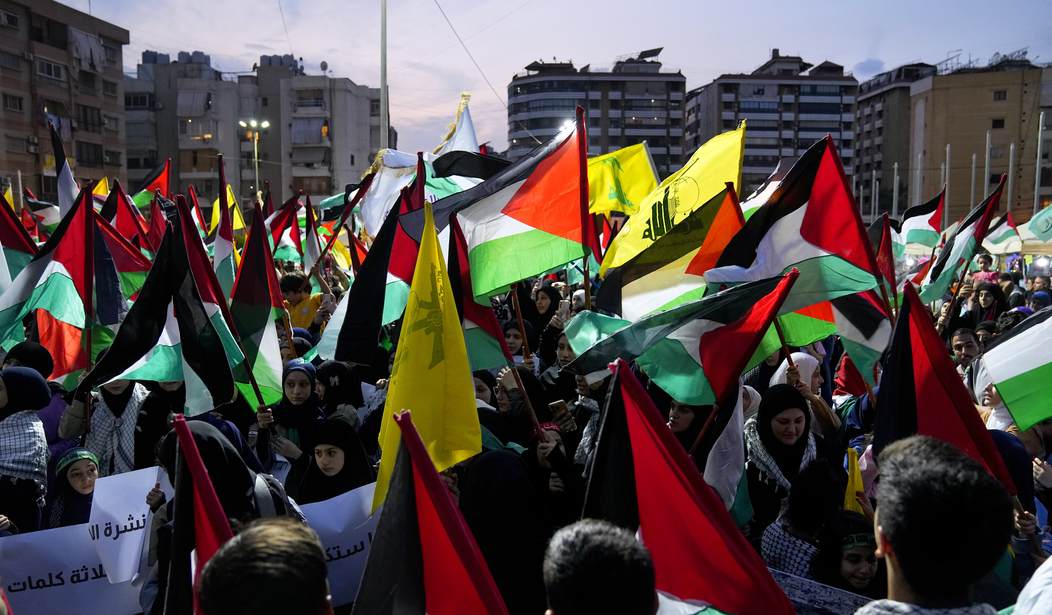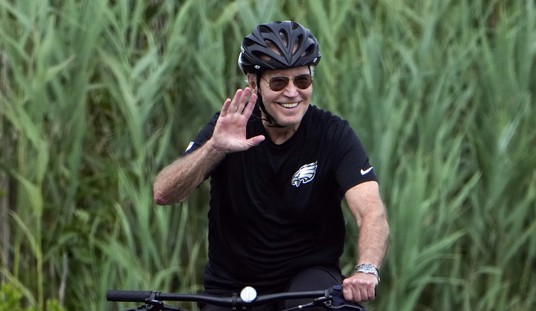People underestimate how important the Associated Press is to our news ecosystem.
No news outlet has the resources to have reporters everywhere, and few have the resources to have foreign correspondents at all. Even those that do rely on the AP as a news collection resource.
Many AP reports don’t even have bylines–they are presented as simple reports of facts in an institutional voice, suggesting that they are untainted by bias.
That is of course ridiculous. Anybody who has perused the AP stylebook knows that it is filled with institutional bias, and at least in hotspots where political issues are contested, the reporters have often chosen a side.
That is particularly true in places such as Gaza, where the reporters are often with ideological commitments and loyalties.
Just who do you think is on the ground in Gaza? To survive in the Gaza Strip or on the West Bank you have to be approved of by the people in power, which usually means that the people who are supposedly reporting the news are more often than not shaping it along with the powers that be.
The AP recently suspended a reporter in Gaza because he has a history of social media activism attacking Israel. They didn’t suspend him because they just discovered this–they knew all along–but because others have called them on it. You can read his social media history here.
Associated Press Reporter Tasked With Covering Israel And Gaza Is A Longtime Anti-Israel Activist https://t.co/YswAJEAy1z
— Mollie (@MZHemingway) October 13, 2023
If you think reporters in the West are too cozy with the people in power, imagine what it must be like in a place where not siding with the people in power is a death sentence. News organizations hire anti-Israel activists.
The news services know that this is the case, and are fine with the fact that their stringers and reporters are intensely biased, even collaborators with Hamas and Fatah. There are several reasons why it serves the institutions charged with covering the news to participate in shaping an anti-Israel narrative. It fits their ideological commitments, of course, but even more importantly all the incentives for the individuals and organizations point in one direction.
Matti Friedman wrote a couple pieces back in 2014 describing how it works. Any reporter thrown into the mix quickly learns the rules and the incentives that demand that Israel be portrayed as the bad guy and Palestinians the good guys victimized by an Apartheid regime. I highly recommend reading these pieces as they lay out how a narrative is created.
I won’t get into the details–read one or both of those pieces to get the full picture–but consider just a few facts. First of all, the costs of attacking Israel while being based there are essentially zero. As a Western regime reporters face no repercussions for viciously attacking the regime. They are safe.
But once they cross the border the rules change; displease a Hamas representative and your life is at risk, and your job is done. And since most alternative jobs in the region available to reporters are with organizations that have ties to the Palestinians (reporters often move back and forth between nonprofits that work in the “occupied territories”) one is frozen out of an employment ecosystem.
Photographers in the region aren’t welcome in the territories unless they tell the preferred story. There is no place in the world with a higher concentration of photojournalists than this region–you can get compelling photos while being able to cross the border back into a 1st world city at the end of the day. War journalism in comfort. So the photographers cooperate with Hamas to tell their story.
Most consumers of the Israel story don’t understand how the story is manufactured. But Hamas does. Since assuming power in Gaza in 2007, the Islamic Resistance Movement has come to understand that many reporters are committed to a narrative wherein Israelis are oppressors and Palestinians passive victims with reasonable goals, and are uninterested in contradictory information. Recognizing this, certain Hamas spokesmen have taken to confiding to Western journalists, including some I know personally, that the group is in fact a secretly pragmatic outfit with bellicose rhetoric, and journalists—eager to believe the confession, and sometimes unwilling to credit locals with the smarts necessary to deceive them—have taken it as a scoop instead of as spin.
During my time at the AP, we helped Hamas get this point across with a school of reporting that might be classified as “Surprising Signs of Moderation” (a direct precursor to the “Muslim Brotherhood Is Actually Liberal” school that enjoyed a brief vogue in Egypt). In one of my favorite stories, “More Tolerant Hamas” (December 11, 2011), reporters quoted a Hamas spokesman informing readers that the movement’s policy was that “we are not going to dictate anything to anyone,” and another Hamas leader saying the movement had “learned it needs to be more tolerant of others.” Around the same time, I was informed by the bureau’s senior editors that our Palestinian reporter in Gaza couldn’t possibly provide critical coverage of Hamas because doing so would put him in danger.
Hamas is aided in its manipulation of the media by the old reportorial belief, a kind of reflex, according to which reporters shouldn’t mention the existence of reporters. In a conflict like ours, this ends up requiring considerable exertions: So many photographers cover protests in Israel and the Palestinian territories, for example, that one of the challenges for anyone taking pictures is keeping colleagues out of the frame. That the other photographers are as important to the story as Palestinian protesters or Israeli soldiers—this does not seem to be considered.
The anti-Israel narrative makes reporting from the region easier and more satisfying for reporters, and the people engaged in creating a false story about what is happening on the ground are undoubtedly aware of it. If a bureau chief whose reporters write about how moderate and victimized the Palestinians are also worries the safety of his Palestinian reporters might be put in jeopardy if he told the truth, you know that he is aware that he is self-consciously engaged in lying about the news.
Moderate, victimized people shouldn’t be threatened in such a manner.
Hamas’s strategy is to provoke a response from Israel by attacking from behind the cover of Palestinian civilians, thus drawing Israeli strikes that kill those civilians, and then to have the casualties filmed by one of the world’s largest press contingents, with the understanding that the resulting outrage abroad will blunt Israel’s response. This is a ruthless strategy, and an effective one. It is predicated on the cooperation of journalists. One of the reasons it works is because of the reflex I mentioned. If you report that Hamas has a strategy based on co-opting the media, this raises several difficult questions, like, What exactly is the relationship between the media and Hamas? And has this relationship corrupted the media? It is easier just to leave the other photographers out of the frame and let the picture tell the story: Here are dead people, and Israel killed them.
It should come as no surprise, then, that AP has knowingly employed an anti-Israel activist as its reporter in Gaza. His having been called out was the surprise–he stupidly shouted from the rooftops how much he hates Israel–not that he was pushing propaganda for Hamas. That is just standard practice these days.
Millions of Westerners are subject to a nonstop stream of propaganda that is shaped by our news organizations that collaborate with groups like Hamas. They do so because it is easier and safer for them, and because the younger generation of reporters are products of anti-Western institutions such as our colleges and universities.
The great irony, of course, is that Hamas itself has done more than our MSM in undermining the story they have worked so hard to construct. By broadcasting their atrocities and inspiring demonstrations around the world that celebrate those atrocities, we are getting a small glimpse into their evil mindset unfiltered by the storytellers they cultivated in the MSM.
The MSM is much better at lying to us than Hamas and its supporters, and Hamas itself underestimated how much it relied on their skill at lying for them. By being so open to the world about who they are, they ripped away the curtain unwisely.
But make no mistake–the MSM storytellers knew who Hamas was all along.








Join the conversation as a VIP Member